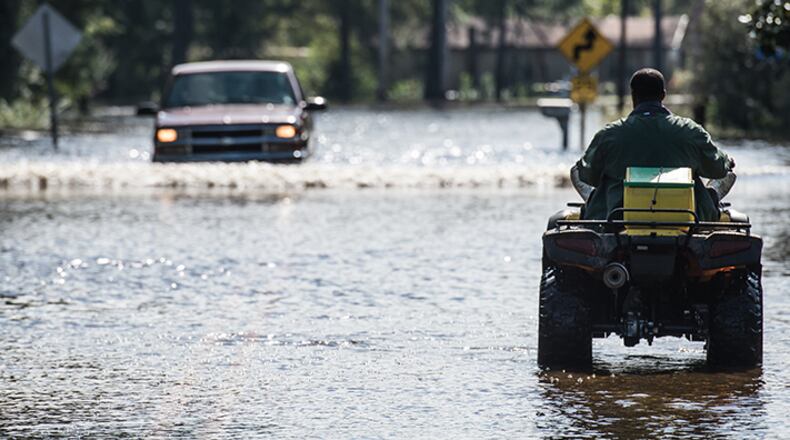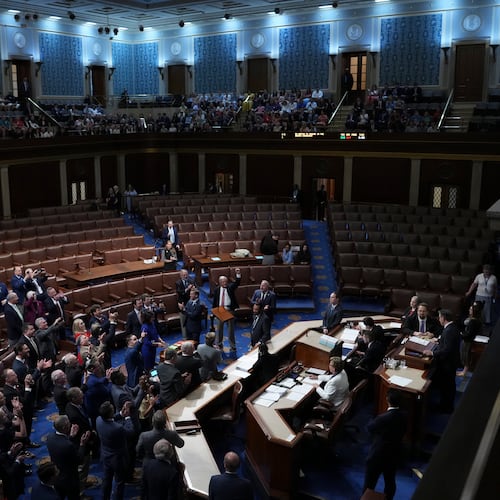Natural disasters such as the floods in South Carolina bring out the best in many people who contribute to churches and charitable organization to help disaster victims. But natural disasters also trigger a less admirable, and surprising, response in most of us.
While expressing our desire to help disaster victims, we criticize as morally contemptible people for providing that help. We refer to them pejoratively, and erroneously, as “price gougers.” South Carolina’s Attorney General has warned that they will be prosecuted in the aftermath of the state’s flooding.
Why are “price gougers” so unpopular? Because—brace yourself—they shift goods and services to where prices are highest. But we all do this. We have friends and neighbors who moved from other states in response to higher salaries. Plenty of us have moved for the same reason. When the demand and salaries increase for those with particular occupational skills, more people develop those skills. When we sell our houses or our cars, we typically sell them to those willing to pay the most.
So what’s the problem? Market prices create prosperity by motivating people to shift their labor and products from where they are worth less to where they are worth more. This is particularly important after natural disasters, since disaster victims need more things, such as carpenters, electricians, lumber, shingles and generators, than are locally available. But those who shift these goods and services out of other areas and into a disaster area where prices are higher are labeled “price gougers” and demonized as social pariahs.
This stereotyping is unfair. “Price gougers” don’t increase the prices disaster victims pay. Quite the opposite. It’s natural disasters that cause higher prices by increasing the demand and decreasing the supply of things victims need. By making available more supplies of those things, “price gougers” keep prices from rising as high as otherwise. Blaming “price gougers” for prices being too high is as silly as a preacher blaming his congregation for being too small.
Critics of “price gougers” should direct their criticism closer to home, since few of them are helping disaster victims as much as the “gougers” are. One could argue that those in non-disaster areas detest “price gougers” because they dislike sharing with disaster victims, which is what “price gougers” force them to do by shifting labor and material to disaster areas. But this would imply people despise “price gougers” because of thoughtful consideration, which is seldom the case.
But don’t high prices harm poor people after natural disasters? They are certainly harmed by the disasters that cause the high prices, but they would be even worse off without the additional supplies and moderated price increases resulting from “price gouging.” Also, it is easier for charitable organizations to assist the poor when more supplies are available at moderated price increases.
Furthermore, when goods aren’t being rationed by higher prices, they are rationed by political influence and social connections. When price controls create shortages of goods, it’s the wealthy, not the poor, who are best able to get special access to those goods because of who they are and who they know.
Giving freedom to direct our labor and resources to where market prices are highest is the most effective way to reduce poverty the world has ever known, even when exercised by those unfairly known as “price gougers.”
Dwight R. Lee is Emeritus Ramsey Professor of Private Enterprise at the University of Georgia and Senior Scholar at the O’Neil Center for Global Markets and Freedom at Southern Methodist University. His email address is dwightl@uga.edu
About the Author
Keep Reading
The Latest
Featured



